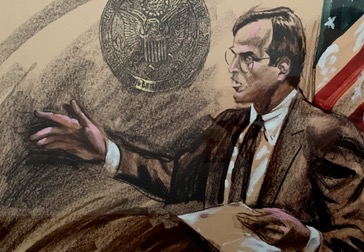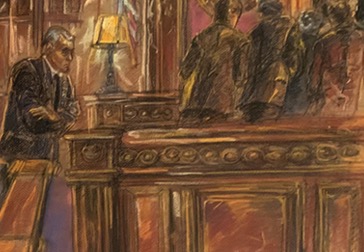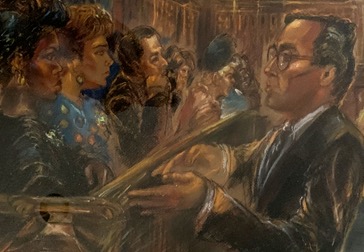Fort Lauderdale Federal Appeals Attorney
Experienced Criminal Attorney Serving Fort Lauderdale, Miami & West Palm Beach
If you’ve been convicted of a white collar crime, drug crime or other federal offense in the United States District Court for the Southern District of Florida, you have the right to appeal that conviction to the 11th Circuit Court of Appeals in Atlanta. This court has jurisdiction over all federal cases in Alabama, Georgia and Florida, and the court maintains a satellite office in Miami. As a long-time federal prosecutor, Fort Lauderdale federal appeals attorney Bruce L. Udolf worked in the appellate section of the U.S. Attorney’s Office for the Southern District of Florida. Bruce understands the intricacies and complexities of pursuing an appeal to the federal circuit court. Call our offices in Fort Lauderdale, Miami or West Palm Beach to discuss the possibility of filing an appeal in your case.
What are the grounds for appealing a federal criminal conviction?
An appeal is not a second bite at the apple. You are not requesting a rehearing or retrying your case. When you file an appeal, you are arguing that some specific error was made during the trial that unfairly prejudiced you. For instance, your petition may allege:
- A wrongful conviction
- Evidence was admitted that should have been excluded or suppressed
- Sentence was too high or too severe, given the circumstances
- Your sentence was illegal or incorrect
What is the difference between a direct appeal and a collateral appeal?
So far, we have talked about direct appeals, meaning you appeal your conviction or sentence directly to the court of appeals. This is a matter of right after any federal criminal conviction. You may additionally be entitled to file a collateral appeal, also known as a request for post-conviction relief. Grounds for collateral appeals most often involve allegations that you received ineffective assistance of counsel at trial or that newly discovered evidence has come to light that should be heard by a court in the interests of justice. Since collateral appeals are not appeals of right, the appellate court has the discretion to accept or reject your petition. It is essential to have an experienced federal appeals lawyer prepare your petition so that it presents a compelling reason for the court to accept to appeal.
What happens if my appeal is successful?
Many different outcomes may result from an appeal. For instance, the appellate court may affirm or reverse the decision of the district court. If your conviction is overturned on appeal, this means you may go free. If you were appealing the sentence handed down by the district court, the appeals court could modify that sentence. Also, the court can remand your case to the district court, which means the court that tried your case will be ordered to adjust or correct your sentence. The appellate court can also order a new trial back in the district court.
How do appeals work?
The first step after a conviction is to file a notice of appeal in a timely manner to preserve your rights. Your appellate attorney will then conduct a thorough review of the trial transcript, along with exhibits and other parts of the trial record, to identify appealable errors that were made at trial. Your lawyer will next prepare a written brief outlining the mistakes made in your trial and how the appellate court should correct them.
The written brief prepared and submitted to the court is a critical step in the appeals process. The Circuit Court may decide the entire case based solely on the briefs presented by the attorneys for the prosecution and the defense. Sometimes, the court may order oral argument, allowing the lawyers to argue their cases in person and answer questions put to them by a panel of appellate judges. South Florida criminal defense attorney Bruce L. Udolf has argued appeals as both a prosecutor and defense lawyer. He is prepared to deliver forceful and compelling advocacy in court if your appeal is selected for oral argument.
It is also possible to appeal a decision from the Circuit Court to the United States Supreme Court. The Supreme Court has the discretion whether to hear criminal appeals. The court typically only takes cases that present significant constitutional issues, but the Court does accept several criminal appeals each term.
Act Quickly and Call Florida Criminal Defense Appeals Attorney Bruce L. Udolf
You have as little as 14 days from judgment to file your notice of appeal after a conviction, so don’t delay. Call Bruce L. Udolf, P.A., to discuss your appeal. With offices in Fort Lauderdale, Miami and West Palm Beach, we handle appeals from convictions throughout the federal courts in the Southern District of Florida.







